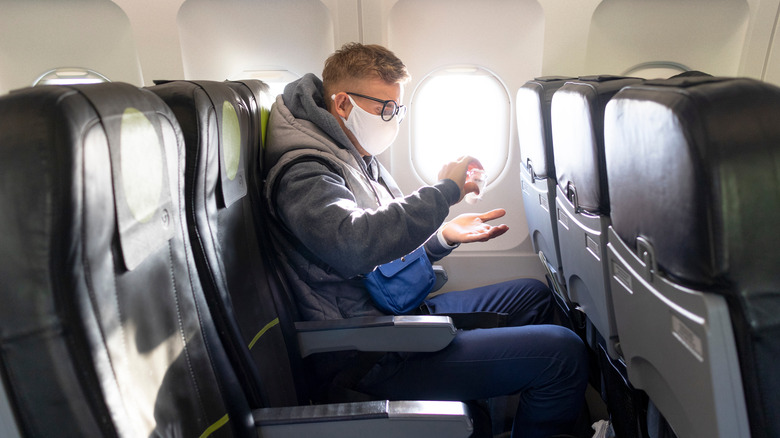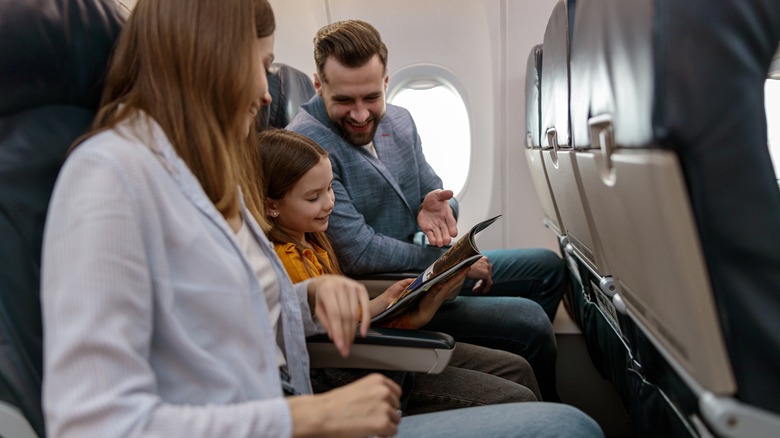What Happens To Your Body When You Fly
Whether you're heading overseas or just a few states over, flying in an airplane might leave you feeling less than your best. Between time zone changes, air cabin pressure, and exposure to germs, it's not uncommon to disembark feeling ready for a shower and a long nap. Now, it turns out that there's a scientific reason for this.
While flying, the environment inside the cabin fluctuates, Dr. Matthew Goldman explained to the Cleveland Clinic. Between changing air pressure, oxygen levels, and temperature, our bodily functions have to try to keep up. The humidity level is also lower at higher altitudes, and all of this can contribute to the stress of being cramped in an airplane with hundreds of people.
Even though the pressure inside an airplane cabin is adjusted to prevent altitude sickness, it's still the equivalent of being at 6,000-8,000 feet, which is like being in Mexico City (via The Healthy). This means that oxygen is lower, which could cause headaches and drowsiness. Since air is pumped into the cabin from outside — which is dry and has very little humidity — you're more likely to become dehydrated. Combined with the lower pressure, this can make you feel fatigued and can even cause nosebleeds.
How your body is affected and how to stay healthy
The lower air pressure inside an airplane can put stress on your ears, leading to feeling imbalanced and causing your ears to pop (via the Cleveland Clinic). This can also contribute to motion sickness. The changes in pressure can even cause the gas inside your abdomen expand, which can make you feel bloated.
It's no surprise that our bodies are exposed to plenty of germs when we spend extended periods of time in an airplane. Even though the cabin air is filtered to remove most bacteria and viruses, there's still the fact that we're in close quarters with many other people. Sneezing, coughing, or even just breathing close to someone else exposes us to lots of germs, in addition to contact with things like tray tables and armrests.
To feel your best when flying, be sure to drink plenty of water — it's recommended to drink an entire bottle of water for every hour you're in the air, according to Northwestern Medicine. Avoid alcohol and caffeine as well to prevent dehydration. Keep your skin moisturized and use eye drops if needed. You can take a short walk on the plane to get your blood flowing, and even do some stretches in your seat to move your body a bit. Try to get rest if you can, and make sure to wear comfy clothing. Finally, don't forget to breathe.


